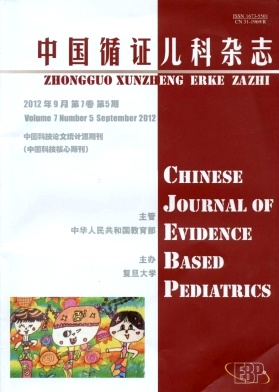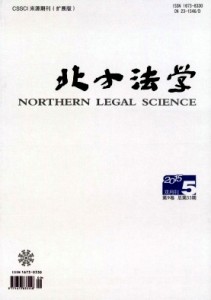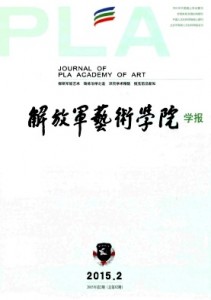论文题目:清代学人的幕府生涯及学术活动
作者简介:尚小明,男,1968年生,1994年从师于刘桂生教授,于1997年7月毕业于北京大学中国近现代史专业并获历史学博士学位。
摘 要
学人游幕为清代普遍存在的社会现象,其内容随着时代的演进和清王朝的兴衰而相应地发生变化。清初处于动荡时期,学人游幕以佐理政事和参赞戎幕为主;清中期社会稳定,经济发展,学人游幕以从事学术活动为主;晚清时期,内忧外患并至,学人游幕又主要转向佐理军政事务,并扩张至洋务、外交等方面。游幕学人的学术活动也带有明显的为现实服务的特征。在清代幕府发展历程中,产生了十余个重要学人幕府,这是一个值得特别注意的现象。康熙时的重要学人幕府,主要从事《明史》、《大清一统志》和理学著作的纂修,是为统治者笼络逸老遗民,确立思想统治服务的。乾嘉时期重要学人幕府,主要从事学术研究。而晚清的重要学人幕府,则以政与学的结合为主要特征。清代幕府对学术发展有着深刻影响。乾嘉时期的许多著名学者,都曾是幕府中人。幕府学者不仅通过相互间的切磋、交流乃至争论,促进了各自的学术研究,而且通过他们的协作,编纂出众多大型经史著作,对中国古典文献进行了大规模整理研究。晚清时期,幕府学者又将大批在战乱中遭到严重损坏的文献典籍重新校刻。这项工作对保存和传播学术文化有重大贡献,对继承和发展中国文化也具有深远意义。
关键词:清代学人 幕府 学术活动
Title of the Dr. Degree’s thesis: Mu-Fu Career of scholars of Qing dynasty and their academic activities
In troduction of the Author: Shang Xiao-Ming was born on January 22 ,1968.
Under the guidance of Prof. Liu Gui-Sheng he was awarded the Dr. degree of history at pekimg University in July,1997.
Abstract:
Scholars of Qing dynasty serving as a “Mu-bin” was a common phenomenon. The content of “Mu-fu” activities changed according to time and the rise and fall of the Qing dynasty. In the early part of the Qing dynasty, social conditions were turbulent, therefore the main activities for the “Mu-bins”were to assist in government affairs and giving consultation in military affairs. The middle of Qing dynasty was more stable and economically developed so the “Mu-bins” were engaged mainly in academic activities. During the late Qing dynasty, the Qing empire was at the same time plagued by both domestic unrest and foreign invasion, as a result, the “Mu-bins” activities again turned to assisting in government and military affairs even assisting in the field of Foreign affairs. Moreover during this perod the “Mu-bins” academic activities also had many parts which oboviously deals with realistic issues.
Over the course of the “Mu-fu” development of the Qing dynasty, there emerged over ten important scholar “Mu-fus”. This is an especially worth noticing phenomenon, for the initial “Mu-fus”were such as: Xu Qian-xue”Mu-fu”, Li Guang-di”Mu-fu” and Zhang bo-xing”Mu-fu”. These “Mu-fu”were set up with the aim of serving the emperor’s wish to win over the support of the Ming dynasty supporters and establishing an ideological rule by compiling Ming History, Da Qing Yi Tong Zhi, and works of neoconfucious.During the rule Emperor Qianlong and Jiaqing some important”Mu-fus”such as:Bi Yuan “Mu-fu,” Ruan Yuan”Mu-fu,” Xie Qi -kun”Mu-fu,” and many other “Mu-fus”were engaged in academic research. In the late qing, while Zeng Guo-fan”Mu-fu,” Zhang Zhi-dong “Mu-fu,” however were principally researching the combination of both politics and academics.
“Mu-fu” of the Qing dynasty had a profound influence on academic development, many famous scholars of Emperor Qian long and Jia qing period, were “Mu-bin.” “Mu-bins” not only helped each others academic research through discussion, exchange of ideas, and disputation, they through their cooperation also arranged and researched Chinese classic literature by compiling many large-scale Confucian classics and history books. In the late Qing dynasty “Mu-fus” scholars again collected and published a large number of ancient classics which were seriously damaged in chaos caused by war. This project made a great contribution to the preservation and propagation of the academic knowledge and culture, moreover it had a far-reaching significance in handing-down and developing the Chinese civilization.
Key words: Scholars of Qing dynasty, “Mu-fu,” academic activities.
相关论文:
相关文章:
声明: 本文由( admin )原创编译,转载请保留链接: https://www.hxlww.net/4142/hxlwfb
- 上一篇:俄汉语称名单位的民族文化语义对比研究
- 下一篇:中国工艺美学思想史






近期评论